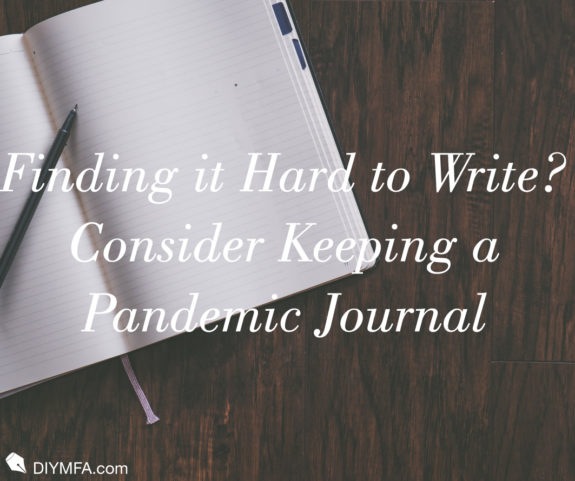Raise your hand if you’re stressed about the COVID-19 pandemic. I’m stressed. Everyone I know is stressed. We want to stay connected to the most current information, but that leads us down depressing rabbit holes projecting inconceivable changes to the way we live our lives. Social media offers a solution to keep us connected to one another, but we also know that increased social media use can lead to higher rates of depression and anxiety. Not only that, but bad information propagates there faster than…well, you know.
In an effort to cope with the madness I declared a personal quarantine from social media, but just before I did, I came across a recommendation to help us through this mess. I think it’s brilliant, so I wanted to pass it along.
Keep a pandemic journal
If dwelling on the topic seems like adding an extra helping of misery to an already-full plate, let me offer three reasons that might make the project easier to digest.
1) Historians of the future will thank you
These are unprecedented times. Historians, whether professional or amateur (like your future kids or grandkids working on a school project), depend on primary sources to fully understand the ways major events shaped our lives. Consider writing down your day-to-day experience in the richest detail you can. Dig in. Complain with the ferocity of two Wal-Mart shoppers battling it out over the last 4-pack of toilet paper. Ask the scary questions bouncing around in your head, particularly if your alternative would be to voice them in an environment where others around you, especially children, might get frightened. It’s a safe place to vent your real fears and frustrations. Which leads me to:
2) It may help you cope with stress
Research shows that for certain categories of people, journaling your daily experience may help you mitigate depression and anxiety in the long run. For people who are “not suffering from PTSD, and not a first responder in the midst of living daily crisis [or] trauma, and [for whom] is writing feels cathartic and helpful, then writing about this is probably a good idea,” says Dr. Jennifer Plumb Vilardaga, Ph.D., a clinical psychologist affiliated with Duke University.
She theorized that writing the experience down gives a person distance that allows them to form a new relationship to that experience. It becomes a narrative that can be evaluated, rather than a closed loop of thoughts in the person’s head. Dr. Plumb Vilardaga further noted that evidence suggests it’s particularly helpful to write about what feels meaningful and vital to the person in the context. For example, noting details such as, “I needed to get exercise, so I took a walk today,” or “I bought groceries for elderly Mrs. Smith next door so she didn’t have to go out,” may offer outsized benefits over writing about something more generalized or external.
That said, if you try journaling your experience and it doesn’t feel helpful, stop and seek professional help. Many therapists are offering virtual sessions during this time so check out your area’s options. Or, Dr. Plumb Vilardaga recommends Betterhelp.com as a source for online therapy. The site offers sessions with licensed, accredited psychologists, marriage and family therapists, clinical social workers, and board licensed professional counselors so you can get support without violating important social distancing behaviors.
3) It can help you maintain your writing practice
I’m finding it hard to concentrate these days. If I can get 100 words on my WIP, I chalk that up as a win. Maybe you feel the same way. Writers who value a daily practice but struggle to maintain it under the current circumstances may find journaling their experience a good alternative that keeps the words flowing as they seek a new normal.
I wish you all luck as you care for loved ones, pursue your work, and maintain your writing in these unprecedented times. Stay safe and well.

Helen J. Darling writes and publishes contemporary women’s fiction at her imprint, Bricolage Books. She published her first novel, I’ll Know Me When I Find Me, in January 2018. Her latest novel, Terms and Conditions, was published in November 2019. You can connect with her at itshelendarling.com, on Instagram, Twitter and on Facebook.







